When you walk through the bars and supermarkets of Budapest, it is easy to think that the main Hungarian beers have always been competing on the same ground. However, behind brands such as Dreher, Borsodi, Arany Ászok or Szalon Sör there is a history marked by tradition, innovation… and politically imposed divisions. Hungarian brewing has centuries-old roots, with a remarkable evolution from medieval home brews and monastic beers to the industrial boom of the 19th century, especially in the Kőbánya district of Budapest, considered the country’s brewing heartland. However, after World War II and during the communist era, the state restructured the beer market, assigning each brewery a specific geographical region, limiting competition and shaping local identities: Borsodi in the east, Soproni in the west, Dreher and Arany Ászok in the capital, and Szalon from Pécs in the southwest. This organisation left a lasting impression on the palate and consumer loyalty. Today, in contemporary Budapest, those old boundaries have blurred, and all these beers coexist on the shelves, representing not only different styles, but also fragments of the country’s brewing and political history.
Dreher Classic
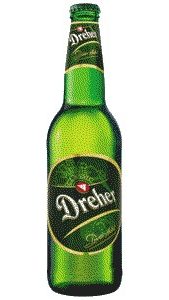
Origin
The history of Dreher began in 1854 with the founding of the ‘Kőbányai Serfőző Társaság’ (Kőbányai Serfőző Társaság Brewing Company) by Peter Schmidt. The initial name of the company and its first product, the beer ‘Kőbányai Ser’, established from the very beginning a strong connection with the Kőbánya region, a district that would soon become synonymous with brewing in Hungary. In 1862, a turning point in the brewery’s history, Anton Dreher, an already well-known figure in the brewing world and known as the ‘King of Beer’, acquired the brewery, which was then called ‘Kőbányai Serház’ (The Brew House of Kőbánya). Dreher’s arrival brought with it his experience and vision, elements that would prove fundamental to the brewery’s future dominance of the Hungarian market. It is important to remember that Anton Dreher was the creator of the Vienna Lager style in 1841, an achievement that placed him at the forefront of brewing innovation in the 19th century, even before the popularisation of Pilsner. His amber ‘Schwechater Lagerbier’, introduced in the same year, set a precedent for many amber lagers to follow. In 1870, the next generation of the Dreher family took over the reins of the company when Anton Dreher Jr. assumed leadership. Under his leadership, the brewery underwent a major expansion of technology and production capacity, which led to Kőbánya becoming the largest brewery in Hungary.
Ingredients
It is brewed with barley malt, water and two types of hops, following traditional recipes that omit corn, giving it a balanced and refreshing taste, typical of a European lager.
Production Site
The Dreher Brewery (Dreher Sörgyárak) is headquartered in Budapest. The exact address of its premises is Dreher Antal út 3, 1106 Budapest, Hungary. It is significant to note that the brewery still operates in Kőbánya, the same district where it was originally founded, in a factory that has been restored over the years. This location is accessible for tours, highlighting its historical importance.
Borsodi
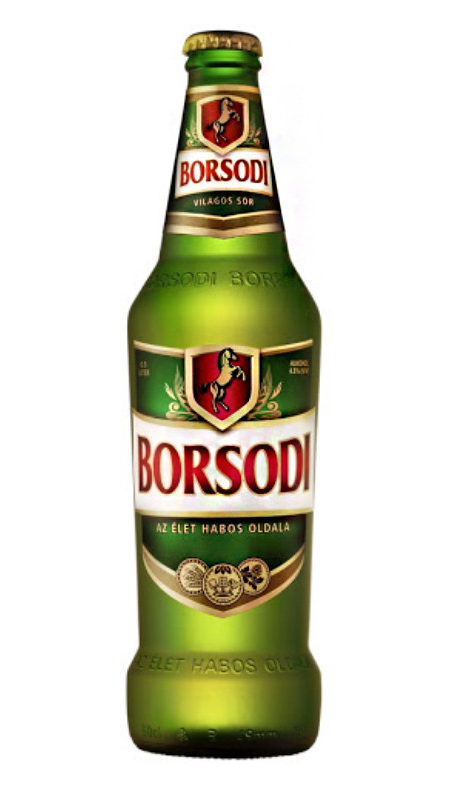
Origin
The history of Borsodi began in 1969 with the start of the construction of its brewery in the village of Bőcs, located near Miskolc, the capital of Borsod-Abaúj-Zemplén County. This location in eastern Hungary marked the beginning of a brand that would become synonymous with this part of the country. The brewery began production in 1973. The name ‘Borsodi’ has a direct and evocative meaning, translating as ‘From Borsod’, referring to a former county in Hungary which today forms part of the county of Borsod-Abaúj-Zemplén underlining the beer’s strong regional connection with its place of origin. During the socialist period in Hungary, the beer market was structured in such a way that each brewery operated in defined geographical regions, without direct competition with each other. Borsodi was assigned to the eastern part of the country and was responsible for supplying this market. This system of regional monopolies shaped the development of the brand and its relationship with consumers in Eastern Hungary. A significant change in Borsodi’s history occurred in 1993, after the fall of communism, when the brewery was privatised and acquired by the Belgian company Interbrew, which subsequently merged to form the brewing giant InBev (now AB InBev). This acquisition marked an important transition for Borsodi from a state-controlled entity to part of a global brewing conglomerate, which inevitably influenced its production, marketing and distribution strategies.
Ingredients
It is now brewed with water, barley malt and hops, without corn starch, according to recent reviews, indicating a shift towards pure malt recipes, possibly to align with quality trends. Previously, it included corn, but recent sources, such as reviews in 2024, confirm the absence of this ingredient.
Production Site
The factory of Borsodi Sörgyár Zrt, the company responsible for the production of Borsodi, is located in Bőcs, a village near the city of Miskolc, with an additional plant opened in 2005 with a capacity of 370 million litres per year, strengthening its position in the market.
Arany Ászok
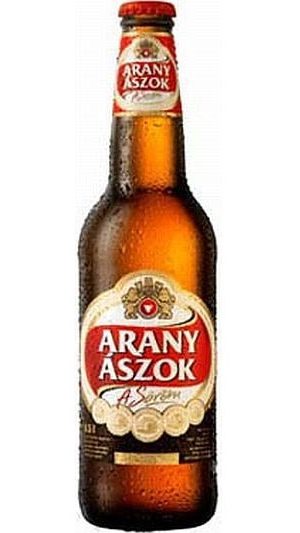
Origin
The Arany Ászok brand was introduced to the market by the Dreher Sörgyár brewery in 1924. This launch came at a period of significant social and economic change in Hungary, marking the emergence of a beer that would soon become a national classic. The name ‘Arany Ászok’ translates from Hungarian as ‘Golden Ace’. This name was probably intended to convey a sense of superior quality and to allude to the beer’s bright golden colour, a characteristic commonly associated with good quality lagers. Production of Arany Ászok stopped after the nationalisation of the Dreher brewery in 1948, an event that affected many companies in Hungary during the communist era. However, the brand was successfully revived in 1989. This relaunch, after decades of absence from the market, underlines the strong emotional connection Hungarian consumers had with Arany Ászok and its enduring cultural importance. Arany Ászok is described as a light beer belonging to the pilsner category. This classification places it within a popular and globally appreciated beer style, known for its refreshing character and clean taste.
Ingredients
It includes water, barley malt, corn grits, hops and hop extract, giving it a light profile with a touch of bitterness, typical of Hungarian pilsners.
Production Site
It is produced in Kőbánya, Budapest, sharing facilities with other Dreher brands, consolidating this area as a historical brewing centre.
Soproni Óvatos Duhaj IPA
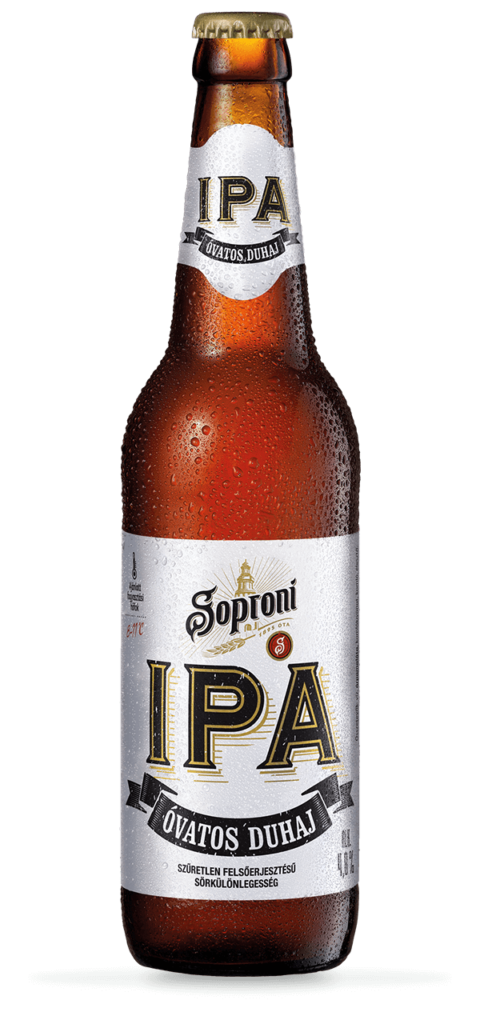
Origin
Soproni Sörgyár has a long history in Hungary, dating back to 1895. This makes it one of the oldest and most established breweries in the country, with a rich brewing tradition. Soproni Óvatos Duhaj IPA represents an unfiltered speciality beer brewed using top-fermenting yeast. It is produced by Soproni Brewery, part of Heineken Hungária, in Sopron, Western Hungary. Introduced in 2017, it is part of the Óvatos Duhaj series, following the trends of IPAs, which gained global popularity since the 1970s. It is an example of large Hungarian breweries adopting craft styles, although it is not considered a craft beer, but a mass-produced speciality with guaranteed consistency.
Ingredients
It is brewed with water, 100% Hungarian barley malt, and Citra and Cascade hops, using top-fermenting, unfiltered yeast, which gives it a floral and fruity profile, typical of IPAs, without including adjuncts such as corn, aligning with the style.
Production Site
Soproni Óvatos Duhaj IPA is produced by Heineken Hungária Sörgyárak / Sopron Brewery in Sopron, Hungary. This clearly places its production in the city of Sopron in western Hungary, which distinguishes it from the more Budapest-centric brewing history of Dreher and Arany Ászok, and the eastern origins of Borsodi.
Szalon Sör
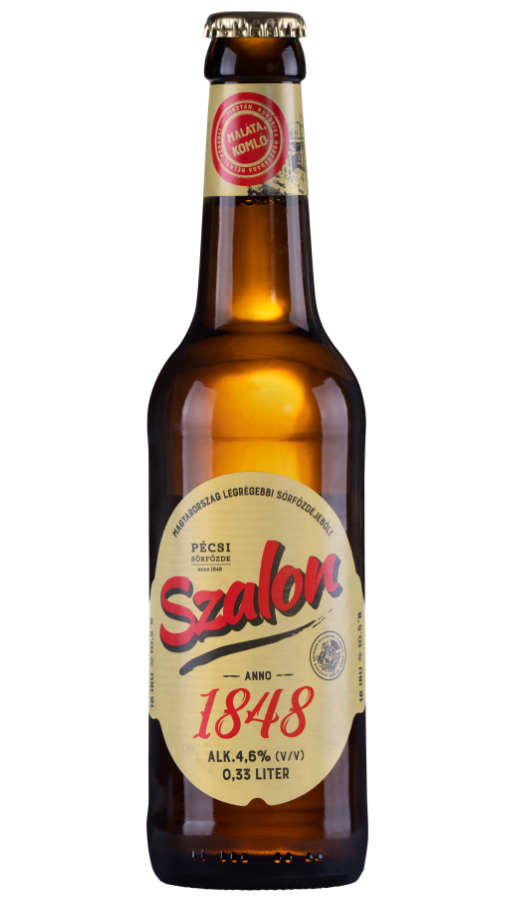
Origin
Pécsi Sörfőzde (Pécs Brewery) was founded in 1848 by Hirschfeld Lipót (Leopold Hirschfeld). This makes Pécsi Sörfőzde one of the oldest breweries in Hungary, even predating some of the best known breweries in Budapest. The Szalon Sör brand was registered as a trademark by the Chamber of Industry (Iparkamara) in 1907 and continues to be produced under that name today. In 1911, Sámuel Hirschfeld, son of the founder, established the company later known as Pécsi Sörfőzde Rt. This transition to a joint stock company under the management of the founder’s son indicates a period of growth and formalisation of the brewery’s operations. During privatisation in 1993, a significant part of the company was acquired by the Austrian Ottakringer Group, although the brewery continues to operate independently as a Hungarian company. This foreign ownership, while significant, has not diminished the brewery’s Hungarian identity, suggesting a degree of autonomy in its operations and branding. Since 2018, Pécsi Sörfőzde has been brewing its beers in the traditional way, following the Bavarian purity law of 1516 (Reinheitsgebot), using only malt, hops and water. This commitment to the Bavarian purity law means a focus on natural ingredients and traditional brewing methods, potentially appealing to consumers who value authenticity and quality.
Ingredients
It is brewed with water, barley malt, hops and yeast, following the German purity law (Reinheitsgebot), with no adjuncts, which positions it as a pure malt beer, according to 2018 reviews highlighting its compliance with this standard.
Production Site
Szalon Sör is produced by Pécsi Sörfőzde in Pécs, a city located in the southwest of Hungary. The address of the brewery is Alkotmány u. 94, Pécs, 7624, Hungary. This location in Pécs clearly distinguishes Szalon Sör as a product of a specific region of Hungary, contributing to the diversity of Hungarian brewing production beyond the capital.

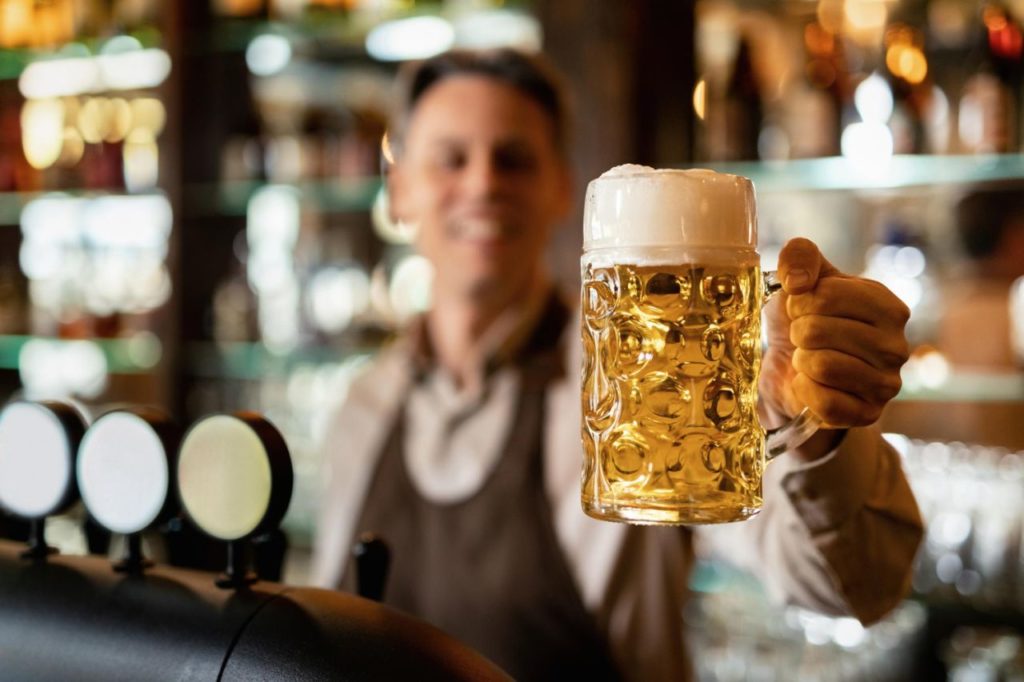
Comments are closed.